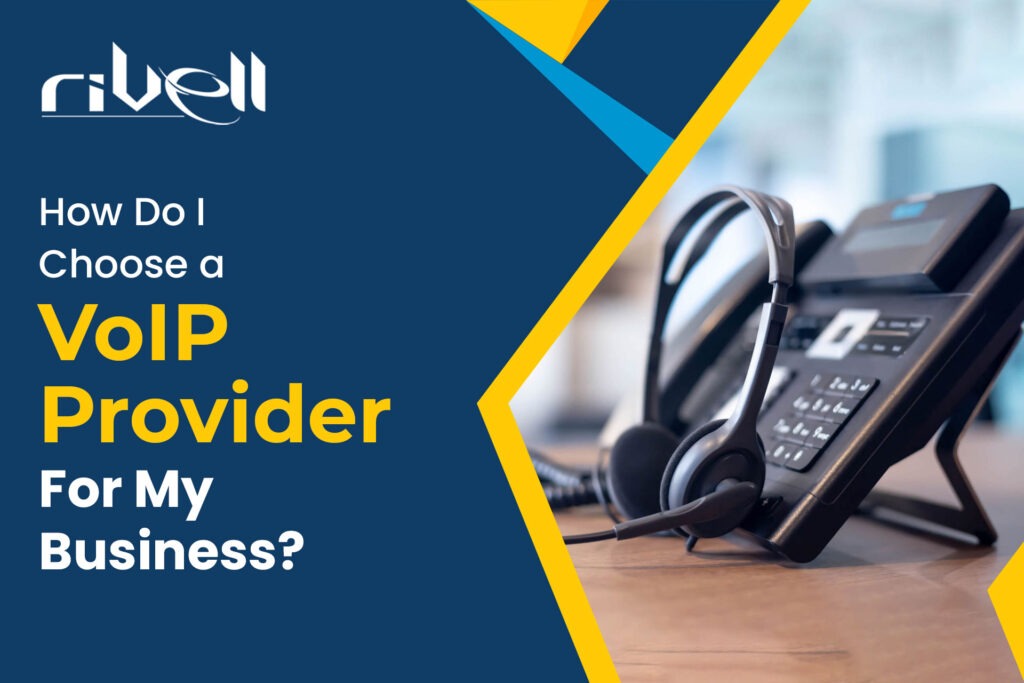In the rapidly evolving landscape of business communication, Voice over Internet Protocol (VoIP) has emerged as a game-changer. VoIP technology allows businesses to make voice calls using the internet rather than traditional phone lines, offering cost savings, scalability, and an array of features. But with numerous VoIP providers in the market, how do you select the right one for your business? In this comprehensive guide, we’ll explore the key factors to consider when choosing a VoIP provider that aligns with your business needs.
1. Assess Your Business Needs
Before diving into the world of VoIP providers, it’s crucial to assess your business’s unique communication requirements. Consider factors such as:
- The size of your business: Are you a small startup or a large enterprise?
- The number of employees who will use the system.
- Your current phone system: Do you need a complete overhaul or just supplementary services?
- The features you require: Think about call forwarding, voicemail, video conferencing, and other specific functionalities.
By understanding your needs, you’ll be better equipped to select a VoIP provider that caters to your specific requirements.
2. VoIP Features and Capabilities
Different VoIP providers offer varying features and capabilities. Here are some essential features to look for:
- Call Management: This includes features like call forwarding, call waiting, and call routing, which are essential for effective business communication.
- Voicemail to Email: Voicemail messages are forwarded to your email, making it easy to access and manage them.
- Auto Attendant: An automated system that directs incoming calls to the appropriate department or extension.
- Video Conferencing: Especially important for remote work and collaboration, make sure the provider offers reliable video conferencing capabilities.
- Mobile Accessibility: Check if the VoIP service is compatible with mobile devices and offers a mobile app for on-the-go communication.
Read More : What is the difference between VoIP and Traditional Telephone?
3. Reliability and Call Quality
The reliability of your VoIP service is paramount. Dropped calls, poor call quality, and downtime can negatively impact your business operations. To assess reliability, consider:
- Service Level Agreements (SLAs): Review the provider’s SLAs to understand their uptime guarantees and compensation policies for downtime.
- Quality of Service (QoS): Ensure the provider can offer QoS features to prioritize voice traffic and maintain call quality.
- Redundancy: Look for providers with redundant data centers and failover capabilities to minimize service disruptions.
4. Scalability and Growth
Your business is likely to evolve over time, so choose a VoIP provider that can scale with you. Consider:
- Scalability: Check if the provider can accommodate your business growth by adding lines or extensions without major disruptions.
- Integration: Ensure the VoIP system can seamlessly integrate with your existing tools, such as CRM software or email platforms.
Read More: 5 Benefits of Using VoIP Phones at Home vs. Home Phones
5. Cost and Pricing Structure
VoIP can provide cost savings compared to traditional phone systems, but pricing structures vary. Look for transparency in pricing and consider:
- Pricing Models: Providers may offer per-user pricing, per-minute pricing, or a combination of both. Choose the model that aligns with your usage patterns.
- Hidden Costs: Be aware of any hidden fees, such as setup fees, hardware costs, or charges for additional features.
- Contract Terms: Review contract terms carefully. Some providers offer month-to-month options, while others require long-term commitments.
6. Customer Support and Service
Reliable customer support is essential, especially if you encounter technical issues. Consider:
- Support Availability: Check the provider’s support hours and whether they offer 24/7 support for critical issues.
- Customer Reviews: Read reviews and testimonials to gauge customer satisfaction and the provider’s responsiveness to issues.
- Training: Inquire about training and resources available to help your team effectively use the VoIP system.
7. Security and Compliance
VoIP systems can be vulnerable to security threats. Ensure your provider offers robust security measures, including encryption, firewalls, and regular security updates. Additionally, if your industry has specific compliance requirements (e.g., healthcare or finance), verify that the provider can meet those standards.
8. User-Friendly Interface
A user-friendly interface is essential for easy setup and management of your VoIP system. Ensure that the provider’s interface is intuitive and accessible to your team members.
9. Reputation and Reviews
Research the provider’s reputation and read reviews from other businesses in your industry. A strong track record and positive reviews can be indicators of a reliable VoIP service.
10. Trial Period
Many VoIP providers offer trial periods. Take advantage of these to test the service with your team and evaluate its performance and compatibility with your business needs before committing.
Conclusion
Selecting the right VoIP provider for your business is crucial to ensure seamless communication and productivity. By carefully assessing your needs and considering factors like reliability, features, cost, scalability, and security, you can make an informed choice. When it comes to finding the best VoIP phone services in NJ, it’s essential to conduct thorough research, read reviews, and take advantage of trial periods to identify the provider that aligns perfectly with your business objectives. Remember that the right VoIP solution can not only meet your current needs but also support your future growth and evolving communication requirements.











